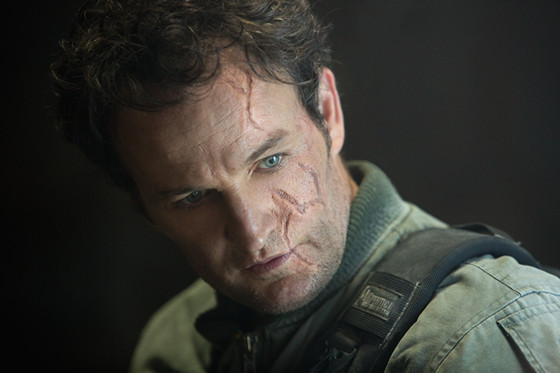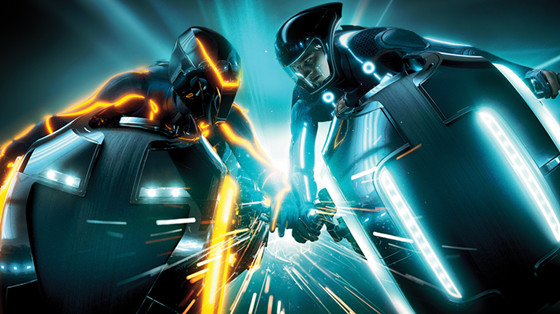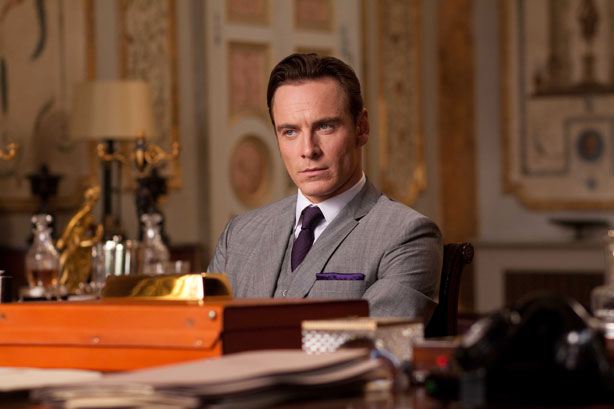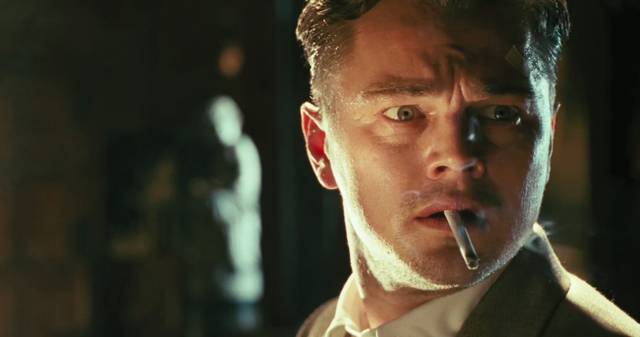6. Terminator Genisys

One of the core concepts underpinning the Terminator franchise is that John Connor is humanity’s only hope of defeating tyrannical AI, Skynet, as the leader of the Resistance forces in the future. Indeed, John’s messiah status is so engrained in the mythology that efforts by the killer app to tamper with time and eradicate the threat John represents is what drives the plot of the first three films in the series.
Which is probably why the filmmakers behind Terminator Genisys went for the biggest rug pull of all, when John stands revealed as a Terminator himself! It’s a plot twist that few could have anticipated – the result of Skynet deciding to change tack, using nanotechnology to convert Connor to its cause in favor of another assassination attempt.
Following the announcement that the upcoming Terminator 6 will undo the events of every instalment since Terminator 2: Judgment Day, the Resistance looks set to get its greatest general back. Nevertheless, it’s hard to shake the memory of that brief moment in time when John Connor wasn’t the best chance for our survival, but one of the gravest threats to it.
7. Tron: Legacy

As the five people who saw Tron in cinemas back in 1982 (or the admittedly larger cult audience who discovered it subsequently) will tell you, the AI program who lends the film its name is also one of its major heroes. Fast forward to 2010 sequel Tron: Legacy, and it appears Tron has been killed (or “derezzed”, to use the lingo of the franchise) since last we saw him, heroically sacrificing himself in battle against malevolent program Clu.
It’s not until very late in proceedings – in a revelation so understated as to be underwhelming – that we learn that Tron didn’t actually die. Instead, he was reprogrammed by Clu to serve as his most fearsome henchman, Rinzler, ruthlessly enforcing his master’s every whim. However, it’s nearly impossible to fully corrupt a truly noble person (digital or otherwise), and Tron ultimately shakes off Clu’s influence in time to fight on the side of right once more.
8. X-Men: First Class

Full disclosure: Magneto starts out as more of an anti-hero in X-Men: First Class than an outright do-gooder. That said, the Master of Magnetism does join forces with Professor Xavier and his valiant team of rookie mutants against their nefarious rivals, the Hellfire Club – so at the very least he flirts with more conventional heroism.
It doesn’t last long, though. It turns out Magneto’s psychological scars – acquired from first-hand experience of the horrors of the Holocaust – run too deep for him to ever let go of his hatred for humanity, or for Hellfire Club head honcho Sebastian Shaw, who murdered his mother. As First Class reaches its climax, Magneto has killed the latter in cold blood and made clear his intent to wage war on the former, evolving into a fully-fledged supervillain in the process.
9. Memento

On the face of it, it’s harder to imagine a more sympathetic character than Leonard Shelby, the amnesiac protagonist of Christopher Nolan’s breakout thriller, Memento. Not only is Shelby trying to track down the man who raped and murdered his wife, but the poor guy is unable to form new memories, which is kinda a problem when you’re running an investigation.
As we bear witness to the single-minded dedication that Shelby displays in his tireless mission to avenge his wife’s cruel fate – he even goes so far as to tattoo clues he’s uncovered onto his body! – we quickly find ourselves rooting for him to succeed.
That is, until Memento’s shocking final revelation: Leonard already has succeeded. He bumped off his wife’s murderer, John G, years ago, and thanks to his condition, he’s been tracking down and killing other people with that name ever since. What makes things even worse is that when Shelby learns the truth, he chooses to perpetuate the cycle, making him fully responsible for his ongoing spree…at least until he forgets again, that is.
10. Shutter Island

U.S. Marshal Teddy Daniels clearly has some demons kicking around in his skull, but he’s nevertheless a dedicated officer of the law who is relentless in his pursuit of justice. Indeed, his inquiries into the disappearance of mental patient Rachael Solando in Shutter Island display a level of zeal that definitely qualifies as heroic.
Too bad the whole case is sham, then. That’s right: Teddy’s entire investigation is a ruse concocted by the doctors at the Shutter Island asylum for the criminally insane. Their hope was that this radical course of treatment might spare Teddy – who in reality is no longer a U.S. Marshal, but rather a violent and delusional patient at the facility – from the lobotomy procedures common at the time.
And if you’re thinking, “Well, this all doesn’t necessarily make him a villain”, keep in mind what Teddy did to get locked-up: murdering his neglected, manic depressive wife after she drowned their kids. So sure, he deserves at least some of our pity – just don’t go thinking of him as a hero.